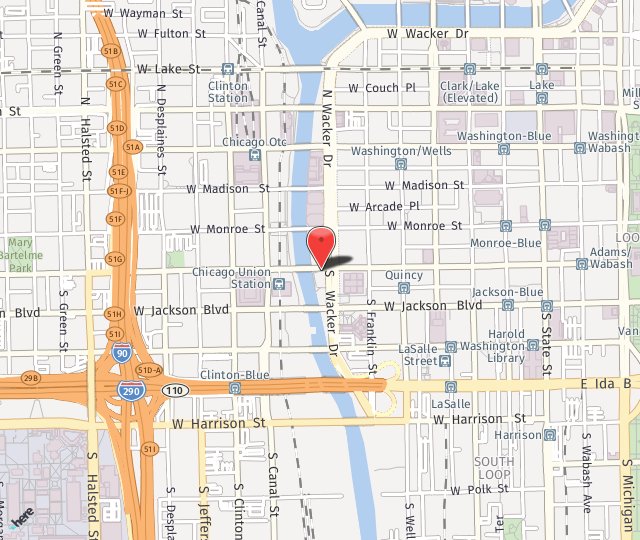Consumer fraud covers a broad array of deceptive and illegal practices performed with the intent to cheat others. Some of the most common types of consumer fraud include identity theft, credit card fraud, unethical debt collection, false advertising, wage theft, and overtime violations. Below, discover tactics that perpetrators use in these situations to violate your rights.
Examples of Identity Theft
Identity theft is one of the most common and devastating types of fraud that consumers encounter. It can happen in many ways. For example, large corporations often handle the sensitive information of thousands to millions of consumers, and when that information is leaked, it can cause huge problems.
We recently took a case against MacNeal Hospital for improper care of sensitive information which led to multiple victims being burglarized. MacNeal Hospital allowed a low-level employee access to information such as the victims’ addresses, which should never have happened under the Personal Information Protection Act.
Social security identity theft is another concern. It takes place when someone steals your physical card, obtains your social security number in a data breach, or tricks you into providing the information.
Be wary of individuals pretending to be from the Social Security Administration, the IRS, or another government agency. Once the perpetrator has your social security number, they can use it to open new credit cards, take out loans, and file false taxes under your name.
Credit Card Fraud Examples
Credit card fraud generally refers to the unauthorized use of a credit card, debit card, or comparable payment tool to illegally obtain money or property. It also covers deceptive practices used by credit card companies to increase their profits as well as credit reporting errors.
A few examples of credit card fraud include:
- Counterfeit card fraud
- Lost and stolen card fraud
- Account takeover
- Never received or intercept fraud
- Hidden fees, false charges, and overcharges
- Double cycle billing
- Credit agency mistakes
Examples of Debt Collection Fraud
The Fair Debt Collection Practices Act provides protection against unscrupulous debt collection companies. A recent case that we litigated involved a misleading letter sent by Midland Credit Management to debtors which failed to warn that by paying any amount, an old debt would be reopened.
Debts have a statute of limitations, and after it has passed, the consumer can no longer be sued for the debt. However, if any amount of the debt is paid after the statute of limitations has passed, that reopens the debt and the consumer can be sued again.
Midland Credit Management failed to disclose this information in the form letter it sent to debtors, and a judge in the case ruled that this was a violation of the FDCP.
Other examples of debt collection fraud include:
- Harassment of a debtor by a debt collection company
- Debt collectors refusing to identify themselves or pretending to be police or a lawyer
- Attempting to misrepresent the amount of debt owed
Examples of False Advertising
False advertising occurs when a business misrepresents an item it sells. False advertising can cover everything from local bait and switch schemes to national advertising campaigns put on by multinational corporations.
Some of the most famous false advertising class action suits include:
- Kellogg’s claim that one of its cereals improved the attention span of children.
- Activia yogurt claiming that it is scientifically proven to improve digestive health.
- Red Bull claiming to enhance your physical and mental abilities.
False advertising lawsuits are often most effective in class action format because typically the monetary amount lost by consumers is not enough on its own to warrant an individual lawsuit.
Wage and Overtime Violation Examples
Employers will often try to skirt the law in order to improve their bottom line, no matter the consequences to employees. Some of the most common examples of wage and overtime violations include:
- Forcing employees to work off the clock in order to avoid paying overtime
- Intentionally miscalculating the amount of overtime paid
- Paying employees less than minimum wage
- Not paying owed vacation time when an employee quits or is fired
- Withholding your final paycheck
Unfortunately, the type of employees who are often targeted with these violations are the ones who need the money the most. Call Markoff Leinberger for a consultation if you think your employer is not paying you fairly.
Schedule Your Complimentary Consultation
Our consumer fraud lawyers help clients obtain justice and reparations against corporations or individuals that have deceived them out of their money. We know the details of laws put in place for consumer protection and can help you fight back when you have been the victim of deceptive or illegal practices. Our firm has a history of obtaining successful verdicts and settlements in these cases.
If you have been a victim of consumer fraud, please don’t hesitate to call Markoff Leinberger at 312-726-4162 to schedule your complimentary consultation. We serve clients in Chicago and nationwide.

